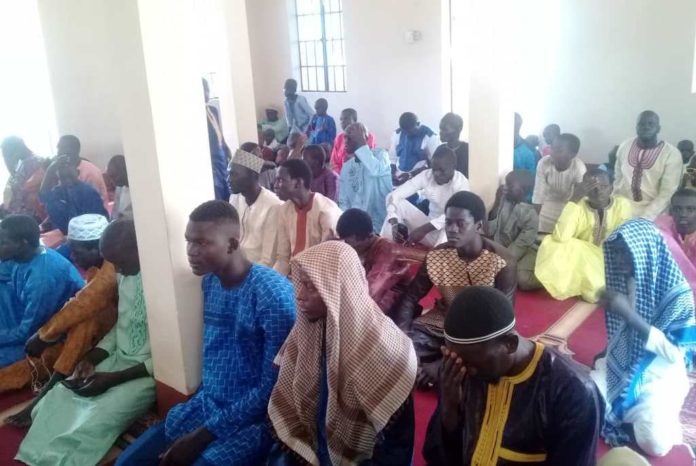By Ansumana Touray
May 23rd and 24th 2020, marked the observance of Eid ( Koriteh) prayers in the Gambia amid the prevalence of COVID-19 pandemic. Eid prayers is normally observed in the form of converging at mosques or designated places. In some areas especially rural Gambia, villages or towns, or a combination of villages, congregate for the two “Rakas’, and a sermon conducted by the Imam.
The prevalence of COVID-19 did not spare even religion and culture. A state of emergency was declared, and regulations followed to curb the pandemic. Some of the measures that were designed to be implemented, (safe spacing) clashed with both culture and religion, and confusion became the order of the day. Sensitization on measures includes doing away with hand shaking, regular hand washing with soap, and the exercise of safe spacing (social distancing) on a daily basis. Hand shaking and to congregate, are both deep rooted cultural and religious practices in the Gambia, and maintaining them at this time appears like climbing up Mountain Kilimanjaro.
As many villages in rural Gambia in their majority observed Eid on the 24th of May 2020, this reporter can confirm the honouring of the regulations at least halfway. In areas where two or more villages used to converge to pray, this time conducted it on their own. In terms of duration, a shorter time was spent compared to previous years. A process that used to take an hour or more, was reduced to 30 minutes or less in many communities, either out of fear of being arrested or as a result of the continuous sensitization of the public.




















